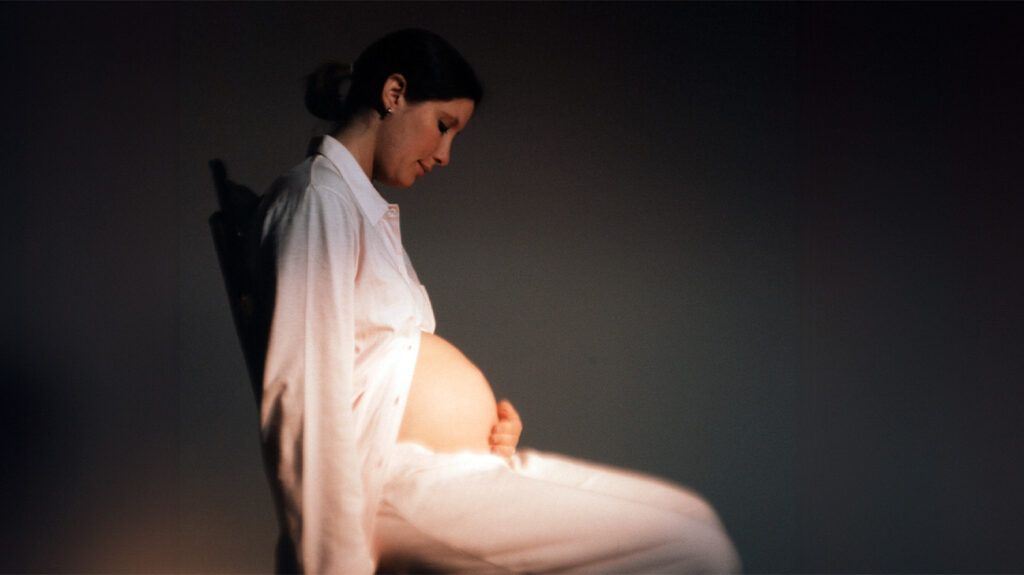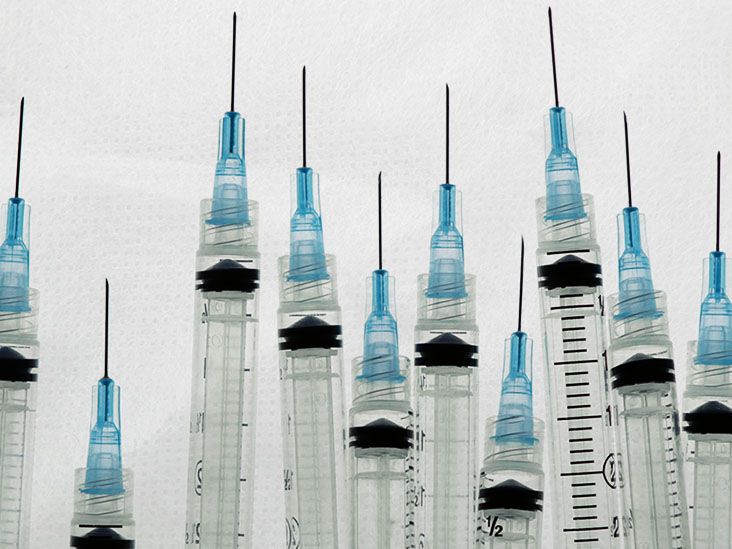Hormonal and immunological changes during pregnancy can cause vision problems, such as blurred vision. Although these impairments are often harmless and resolve after delivery, some vision changes can indicate pregnancy complications.
Hormone fluctuations during pregnancy can lead to changes in the shape of the eye, dry eyes, and other changes that can affect vision. Pregnancy may also cause or worsen conditions that affect vision.
Sometimes, pregnancy complications such as preeclampsia and gestational diabetes may cause vision problems.
Individuals should contact a doctor if they experience vision changes during pregnancy, as these complications can have severe health consequences for the pregnant person and the fetus.

During pregnancy, the body produces larger amounts of certain hormones that cause fluid accumulation. Enlargement of the uterus also contributes to fluid retention, as it can affect blood flow toward the heart. These changes can cause blurred vision.
Hormonal changes and fluid retention can affect the eyes and cause blurred vision in several ways,
- Intraocular pressure (IOP): Some people experience a decrease in IOP, or eye pressure, during pregnancy. Scientists do not understand the exact causes but believe an increase in the hormones estrogen and progesterone may play a role.
- Corneal changes: The cornea may thicken and change shape during pregnancy. Corneal changes can also affect tear production, which can cause dry eye.
- Lens changes: Increases in fluid can affect the lens of the eye, which may cause or worsen cataracts. It may also affect how the eye processes light.
Treatment
Changes in the eye due to pregnancy typically resolve after delivery without treatment.
A doctor
Pregnancy rarely causes severe or persistent eye changes, such as cataracts.
Health professionals associate cataract surgery with various pregnancy complications, especially during the first trimester. These include low birth weight and pregnancy loss. A doctor may advise a person to wait until after delivery to have the surgery.
Vision problems can sometimes indicate serious pregnancy complications, which are medical emergencies. These
- Preeclampsia: Preeclampsia causes a sudden rise in blood pressure and can affect the functioning of the kidneys and liver. It may lead to eclampsia, which can cause seizures, coma, and death.
- Gestational diabetes: Gestational diabetes causes insulin resistance and high blood sugar during pregnancy. Complications of the condition include premature delivery, pregnancy loss, and health problems in the baby.
Vision symptoms associated with these conditions include:
- photopsia, which involves seeing flashes of light or sparkles
- eye floaters, floating specks or dots in a person’s vision
- scotoma (blind spots)
- diplopia (double vision)
- sudden blurred or fluctuating vision
What to do and treatment
A person should urgently seek medical help if they experience symptoms of preeclampsia or gestational diabetes.
A doctor may advise a person with either condition to attend more frequent check-ups and ensure they get sufficient rest.
Treatment for preeclampsia
Treatment for gestational diabetes
Pregnancy may cause or worsen several conditions that can affect vision. This is often due to hormonal and immunological changes that occur during pregnancy.
These
- Idiopathic intracranial hypertension (IIH): Pregnant people with obesity have a high risk of IIH. The condition increases pressure in the brain and causes visual symptoms such as double vision, vision loss, and photopsia.
- Graves’ disease: Graves’ disease is an autoimmune condition that causes an overactive thyroid. Symptoms that affect vision
includeTrusted Source bulging eyes, puffy eyelids, and difficulty moving the eyes. - Pituitary tumors: Pituitary tumors grow on the pituitary gland at the base of the brain. Visual symptoms include changes in the visual field, blurred vision, and double vision.
- Diabetic retinopathy: Diabetes may cause diabetic retinopathy, which is damage to the blood vessels in the retina. The condition can progress rapidly during pregnancy. Visual symptoms include eye floaters, blurred vision, vision loss, and impaired color perception.
Treatment
A doctor will treat each condition that affects vision during pregnancy differently.
- IIH: Treatment may involve weight loss recommendations after pregnancy and medications such as acetaminophen to help relieve symptoms.
- Graves’ disease: Doctors may monitor mild cases and treat moderate to severe cases with antithyroid medications.
- Pituitary tumors: A doctor may use an MRI scan to assess the tumor and closely monitor a person for signs of growth. They
may prescribeTrusted Source medication such as dopamine agonists. - Diabetic retinopathy: Doctors will carefully assess a pregnant person with diabetic retinopathy to determine the safest method of treatment. Treatment may include a type of laser eye treatment called panretinal photocoagulation and anti-vascular endothelial growth factor (anti-VEGF) agents.
Vision problems may occur at any stage of pregnancy, although some more commonly occur during the first, second, or third trimester.
First trimester
Experts
To reduce the risk of eye damage from diabetes during pregnancy, a person may want to attend appointments with an optometrist once per trimester.
IIH and Graves’ disease tend to worsen during the first trimester and improve during the second and third trimesters.
Second trimester
Water retention during the second trimester
Thickening and shape changes in the cornea may lead to blurred vision, and dry eye may occur.
Third trimester
Vision problems
Corneal changes and other conditions
A person should contact a doctor if they experience any ongoing vision problems during pregnancy.
Although most changes are benign, some could indicate pregnancy complications that may be medical emergencies.
When to seek emergency help
A pregnant person should seek emergency medical help if they experience any symptoms of preeclampsia or gestational diabetes.
Visual symptoms include:
- sudden blurred vision
- double vision
- seeing flashing lights
- blind spots
Why is my vision blurry during pregnancy?
Fluid retention and hormonal changes
However, blurred vision may sometimes indicate a pregnancy complication, such as preeclampsia and gestational diabetes.
Is it common to have vision problems during pregnancy?
People
Why are my eyes sensitive to light when pregnant?
Light sensitivity during pregnancy
During pregnancy, why do my eyes hurt when I look around?
Potential causes of eye pain during pregnancy include
Vision problems commonly occur during pregnancy. In many cases, hormone fluctuations and fluid retention lead to eye changes that can affect vision.
Vision problems during pregnancy may cause distress but do not typically cause long-term complications. They usually resolve after delivery.
However, vision problems may sometimes indicate serious pregnancy complications, which can be medical emergencies.
A pregnant person should contact a doctor if they experience vision problems to rule out severe causes.


